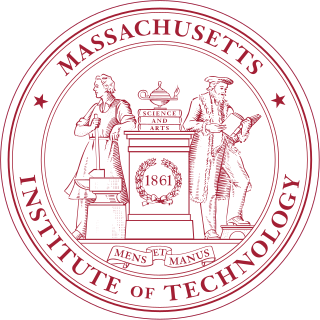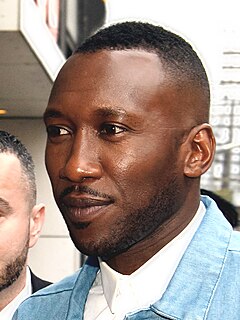
Computer science is the study of processes that interact with data and that can be represented as data in the form of programs. It enables the use of algorithms to manipulate, store, and communicate digital information. A computer scientist studies the theory of computation and the practice of designing software systems.

Earth is the third planet from the Sun and the only astronomical object known to harbor life. According to radiometric dating and other sources of evidence, Earth formed over 4.5 billion years ago. Earth's gravity interacts with other objects in space, especially the Sun and the Moon, Earth's only natural satellite. Earth revolves around the Sun in 365.26 days, a period known as an Earth year. During this time, Earth rotates about its axis about 366.26 times.

The Massachusetts Institute of Technology (MIT) is a private research university in Cambridge, Massachusetts. Founded in 1861 in response to the increasing industrialization of the United States, MIT adopted a European polytechnic university model and stressed laboratory instruction in applied science and engineering. The Institute is a land-grant, sea-grant, and space-grant university, with a campus that extends more than a mile alongside the Charles River. Its influence in the physical sciences, engineering, and architecture, and more recently in biology, economics, linguistics, management, and social science and art, has made it one of the most prestigious universities in the world.

The Moon is an astronomical body that orbits planet Earth and is Earth's only permanent natural satellite. It is the fifth-largest natural satellite in the Solar System, and the largest among planetary satellites relative to the size of the planet that it orbits. The Moon is after Jupiter's satellite Io the second-densest satellite in the Solar System among those whose densities are known.

Star Wars is an American epic space-opera media franchise created by George Lucas. The franchise began with the eponymous 1977 film and quickly became a worldwide pop-culture phenomenon.

Science fiction is a genre of speculative fiction that has been called the "literature of ideas". It typically deals with imaginative and futuristic concepts such as advanced science and technology, time travel, parallel universes, fictional worlds, space exploration, and extraterrestrial life. Science fiction often explores the potential consequences of scientific innovations.

The Academy Award for Best Supporting Actress is an award presented annually by the Academy of Motion Picture Arts and Sciences (AMPAS). It is given in honor of an actress who has delivered an outstanding performance in a supporting role while working within the film industry. The award was traditionally presented by the previous year's Best Supporting Actor winner.

The James Webb Space Telescope is a space telescope that will be the successor to the Hubble Space Telescope. The JWST will provide greatly improved resolution and sensitivity over the Hubble, and will enable a broad range of investigations across the fields of astronomy and cosmology. One of its major goals is observing some of the most distant events and objects in the universe, such as the formation of the first galaxies. These types of targets are beyond the reach of current ground- and space-based instruments. Other goals include understanding the formation of stars and planets, and direct imaging of exoplanets and novas.

Neil deGrasse Tyson is an American astrophysicist, author, and science communicator. Since 1996, he has been the Frederick P. Rose Director of the Hayden Planetarium at the Rose Center for Earth and Space in New York City. The center is part of the American Museum of Natural History, where Tyson founded the Department of Astrophysics in 1997 and has been a research associate in the department since 2003.

Global warming is a long-term rise in the average temperature of the Earth's climate system, an aspect of climate change shown by temperature measurements and by multiple effects of the warming. Though earlier geological periods also experienced episodes of warming, the term commonly refers to the observed and continuing increase in average air and ocean temperatures since 1900 caused mainly by emissions of greenhouse gasses in the modern industrial economy. In the modern context the terms global warming and climate change are commonly used interchangeably, but climate change includes both global warming and its effects, such as changes to precipitation and impacts that differ by region. Many of the observed warming changes since the 1950s are unprecedented in the instrumental temperature record, and in historical and paleoclimate proxy records of climate change over thousands to millions of years.

William Sanford Nye, popularly known as Bill Nye the Science Guy, is an American science communicator, television presenter, and mechanical engineer. He is best known as the host of the PBS and syndicated children's science show Bill Nye the Science Guy (1993–1998), the Netflix show Bill Nye Saves the World (2017–present), and for his many subsequent appearances in popular media as a science educator.

Mars is the fourth planet from the Sun and the second-smallest planet in the Solar System after Mercury. In English, Mars carries a name of the Roman god of war, and is often referred to as the "Red Planet" because the iron oxide prevalent on its surface gives it a reddish appearance that is distinctive among the astronomical bodies visible to the naked eye. Mars is a terrestrial planet with a thin atmosphere, having surface features reminiscent both of the impact craters of the Moon and the valleys, deserts, and polar ice caps of Earth.

Sir Arthur Charles Clarke was a British science fiction writer, science writer and futurist, inventor, undersea explorer, and television series host.

Stephen William Hawking was an English theoretical physicist, cosmologist, and author who was director of research at the Centre for Theoretical Cosmology at the University of Cambridge at the time of his death. He was the Lucasian Professor of Mathematics at the University of Cambridge between 1979 and 2009.
A Bachelor of Science is an undergraduate academic degree awarded for completed courses that generally last three to five years, or a person holding such a degree.

The Academy Award for Best Actor is an award presented annually by the Academy of Motion Picture Arts and Sciences (AMPAS). It is given in honor of an actor who has delivered an outstanding performance in a leading role while working within the film industry. The award was traditionally presented by the previous year's Best Actress winner.

The Academy Award for Best Actress is an award presented annually by the Academy of Motion Picture Arts and Sciences (AMPAS). It is given in honor of an actress who has delivered an outstanding performance in a leading role while working within the film industry. The award was traditionally presented by the previous year's Best Actor winner.

The Academy Award for Best Supporting Actor is an award presented annually by the Academy of Motion Picture Arts and Sciences (AMPAS). It is given in honor of an actor who has delivered an outstanding performance in a supporting role while working within the film industry. The award was traditionally presented by the previous year's Best Supporting Actress winner.

The 90th Academy Awards ceremony, presented by the Academy of Motion Picture Arts and Sciences (AMPAS), honored the best films of 2017, and took place at the Dolby Theatre in Hollywood, Los Angeles, California. The ceremony was held on March 4, 2018, rather than its usual late-February date to avoid conflicting with the 2018 Winter Olympics. During the ceremony, AMPAS presented Academy Awards in 24 categories. The ceremony was televised in the United States by American Broadcasting Company (ABC), produced by Michael De Luca and Jennifer Todd and directed by Glenn Weiss. Comedian Jimmy Kimmel hosted for the second consecutive year.


















